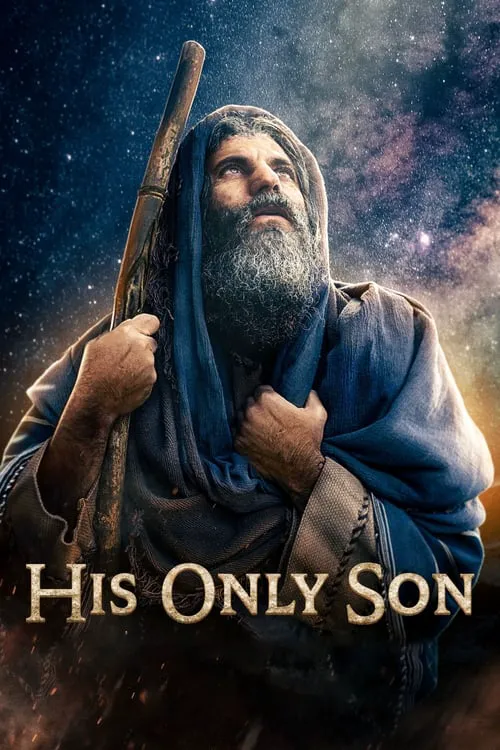His Only Son

Plot
In the film "His Only Son," the narrative revolves around the poignant and powerful story of Abraham, a devoted patriarch of the Hebrews, and his unconditionally loving relationship with his son Isaac. Set against the backdrop of the ancient Near East, the movie delves into the complex emotions and inner turmoil of Abraham as he embarks on a journey to fulfill God's command to sacrifice his only son, Isaac, on the mount of Moriah. As the story unfolds, Abraham recounts the years of waiting, praying, and longing for the fulfillment of God's promise to bless him with a son through his wife, Sarah. The camera weaves a tapestry of memories that reflect the anguish, frustration, and ultimately, the hope that Abraham carried with him throughout his lifetime. The recollections of Abraham are juxtaposed with the present moment, where he must confront the very reality he had always feared: the potential loss of his beloved child. As Abraham sets out on his perilous journey to Moriah, accompanied by Isaac and two unnamed servants, the atmosphere is infused with an air of foreboding and uncertainty. The group's departure serves as a catalyst for Abraham's nostalgia to surface. He is flooded with recollections of his past, reliving moments of doubt, disappointment, and ultimately, faith. The narrative effectively captures the intricacies of Abraham's emotional journey, underscoring the profound nature of his devotion to God and his unyielding commitment to fulfilling His command. Throughout the film, the cinematography plays a pivotal role in evoking the spiritual and emotional significance of Abraham's story. As the family ventures through the desert, the camera pans over breathtaking landscapes, mirroring the vastness of Abraham's emotional landscape. The sweeping vistas of the ancient world serve to underscore the isolation and the magnitude of the task that lies ahead for Abraham. Conversely, when the family reaches the foot of Mount Moriah, the cinematic landscape shifts to reflect the desolate and haunting beauty of the site where the sacrifice is to take place. As the narrative progresses, Isaac, the unsuspecting protagonist, is also shown navigating the complexities of his father's decision. Portrayed as a sensitive and inquiring child, Isaac struggles to comprehend the reasons behind his father's actions. The portrayal of their relationship highlights the bond between the two, and adds depth to the narrative's exploration of faith, sacrifice, and the human condition. In the midst of this powerful and emotional arc, Abraham grapples with the ultimate question: what does it truly mean to follow God's will? Is it an unyielding adherence to His command, or a deeper understanding of the divine plan at work? In a poignant twist, the story also hints at the possibility of redemption, offering a glimmer of hope in the midst of Abraham's darkness. The narrative's climax, where Abraham raises his knife to complete the sacrifice, serves as a moment of sheer human drama, leaving viewers on the edge of their seats as they wonder if Isaac's fate will be sealed. Ultimately, "His Only Son" is a thought-provoking exploration of the complex and multifaceted human experience. As the narrative traverses the expanse of Abraham's emotional landscape, it invites viewers to grapple with the very same questions that Abraham faces: what does it mean to put one's faith in action? What are the costs of devotion, and what are the long-term consequences of one's choices? By probing the intricacies of Abraham's heart, the film offers a profound reflection on the universal themes of love, sacrifice, and redemption.
Reviews
Recommendations




